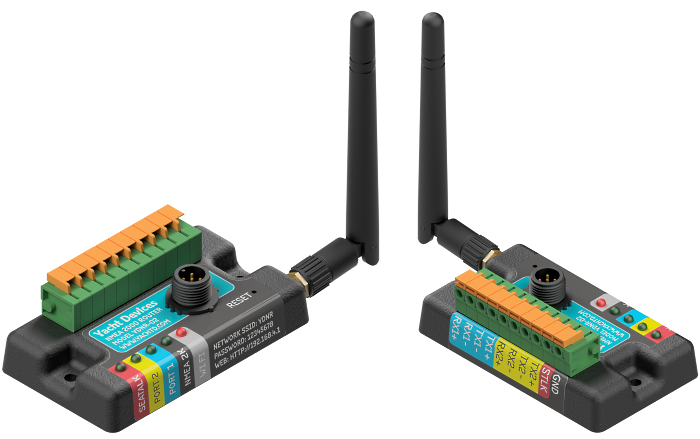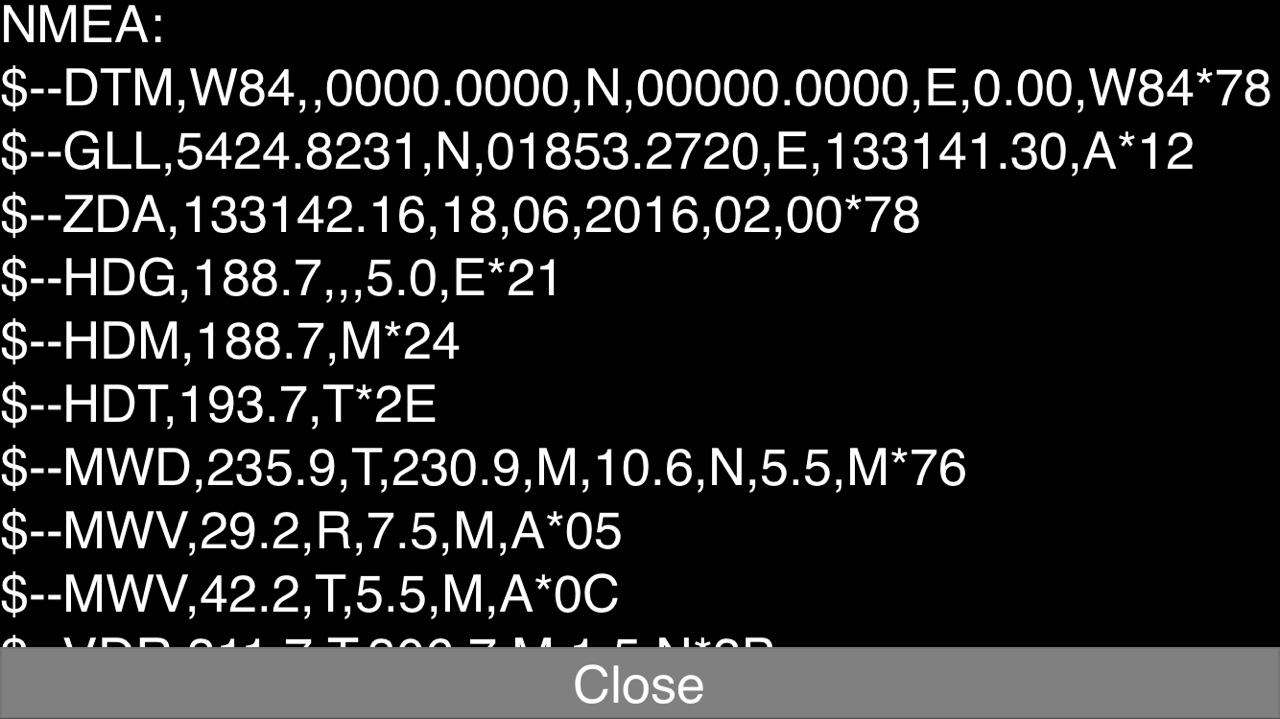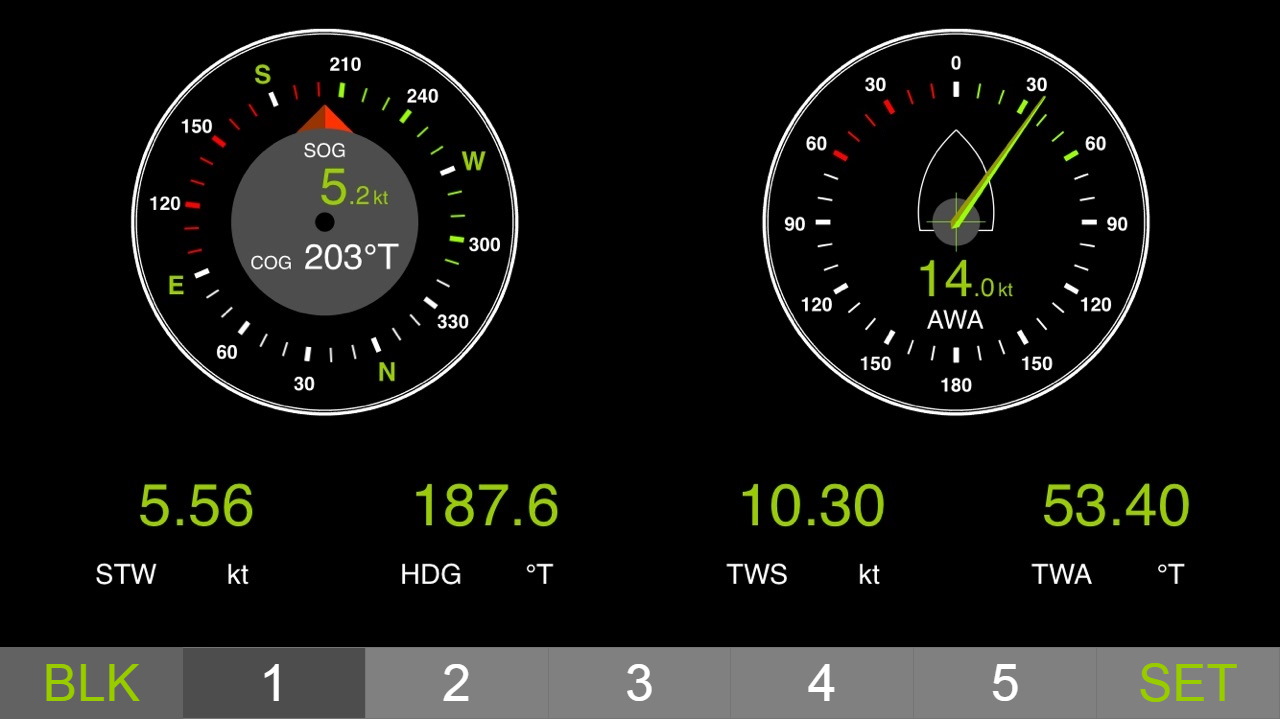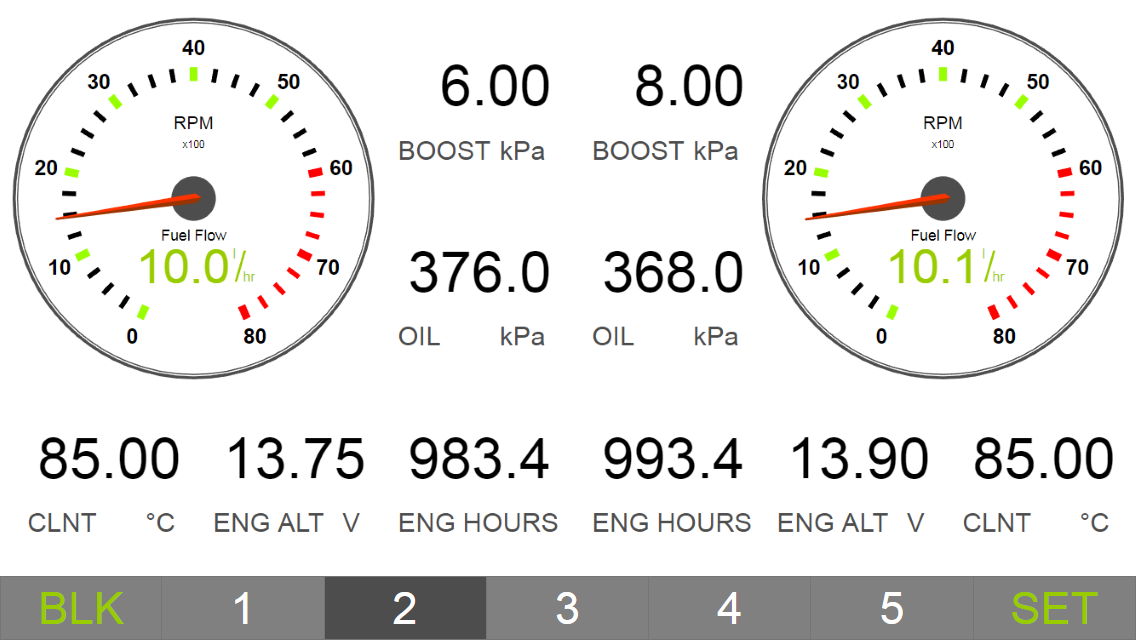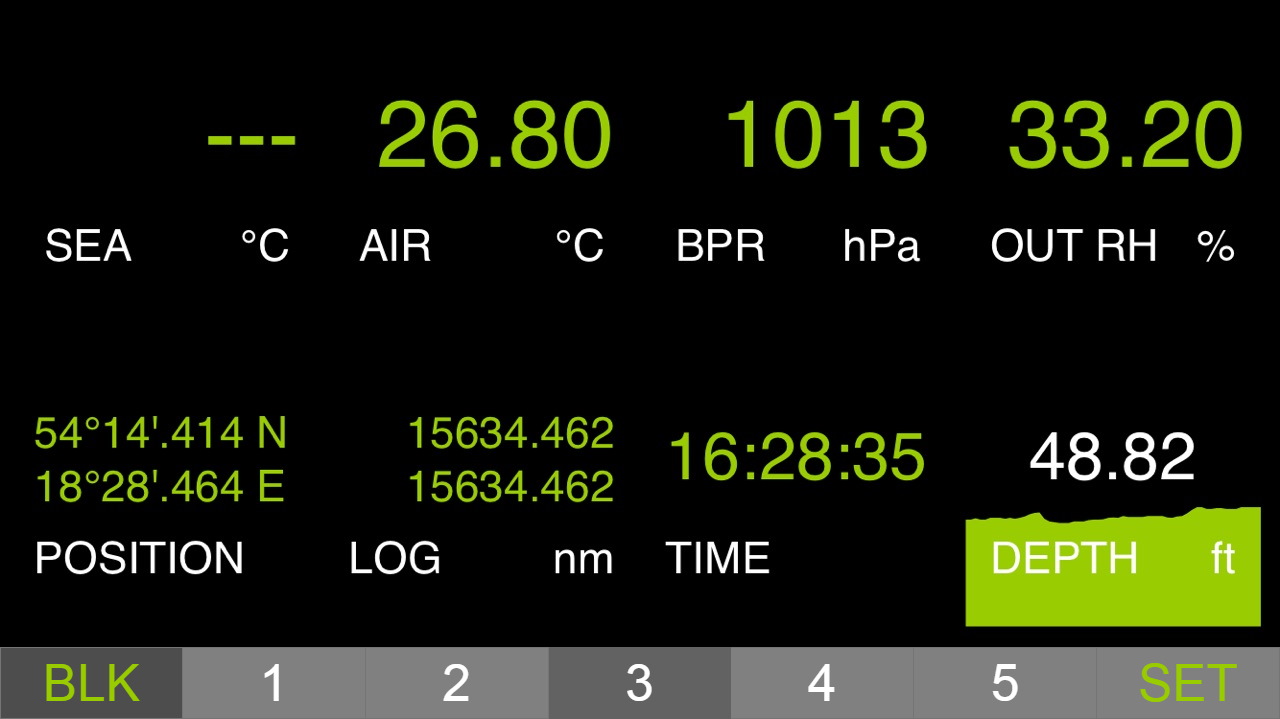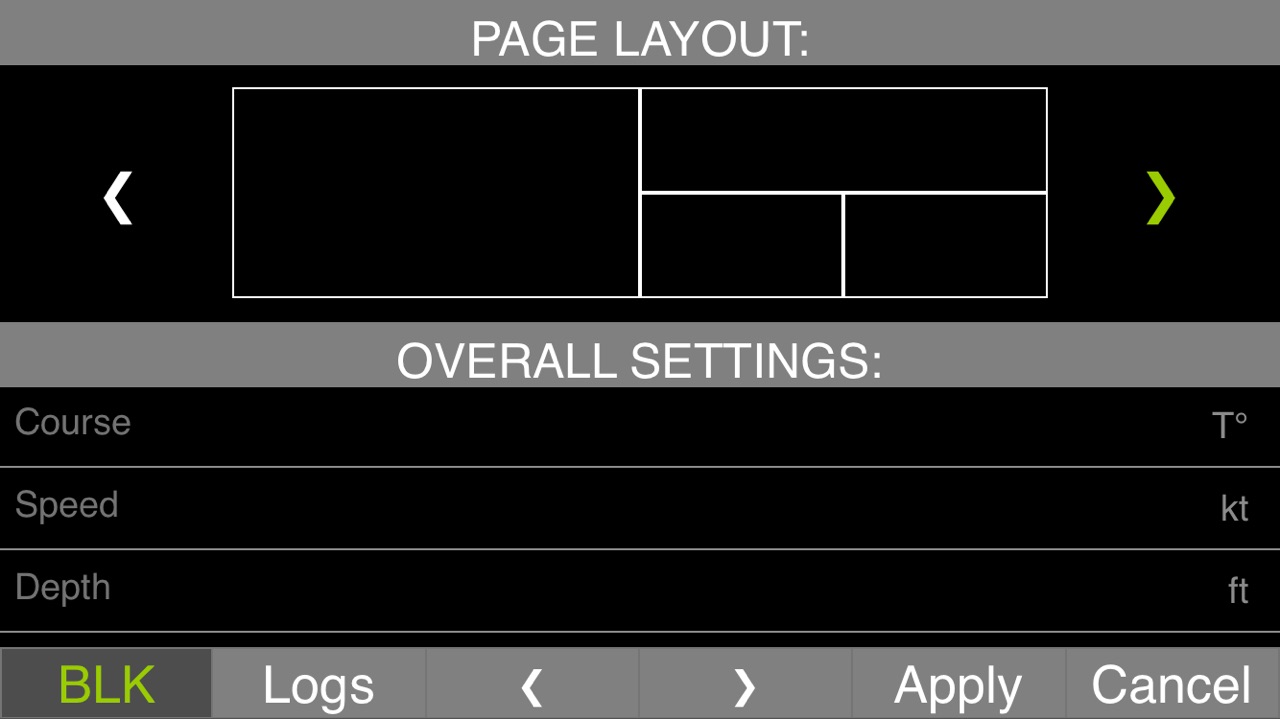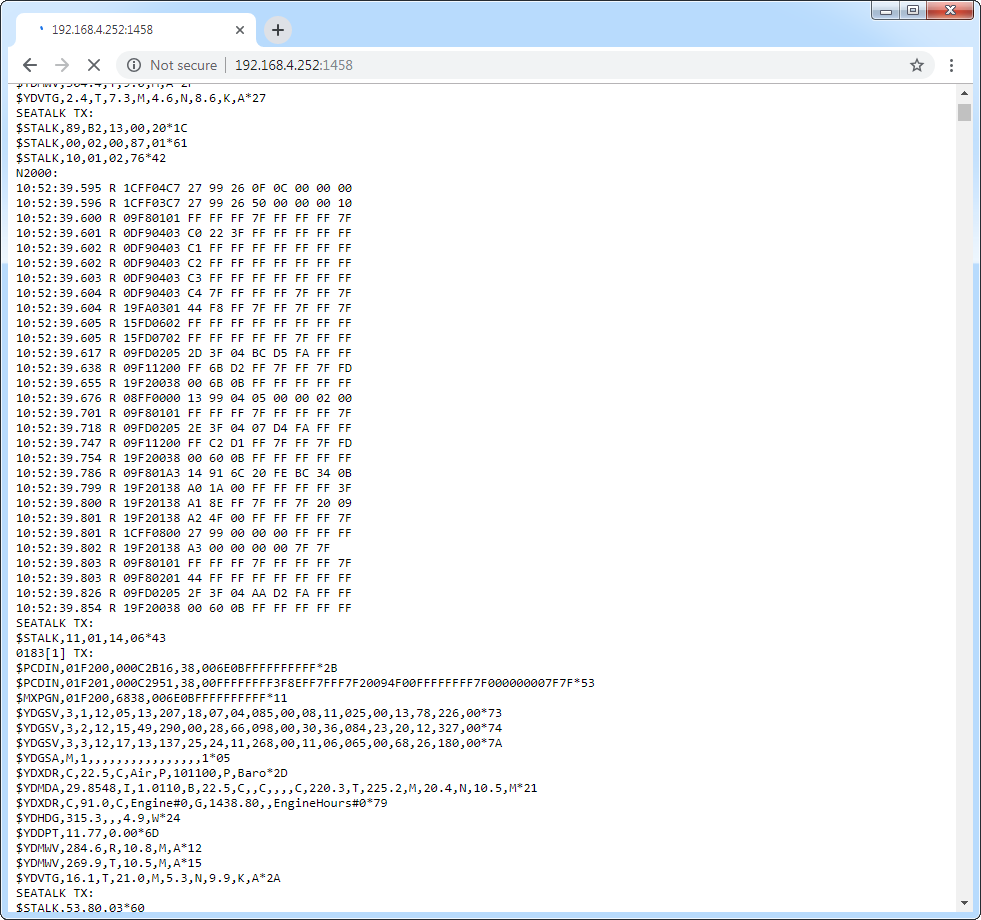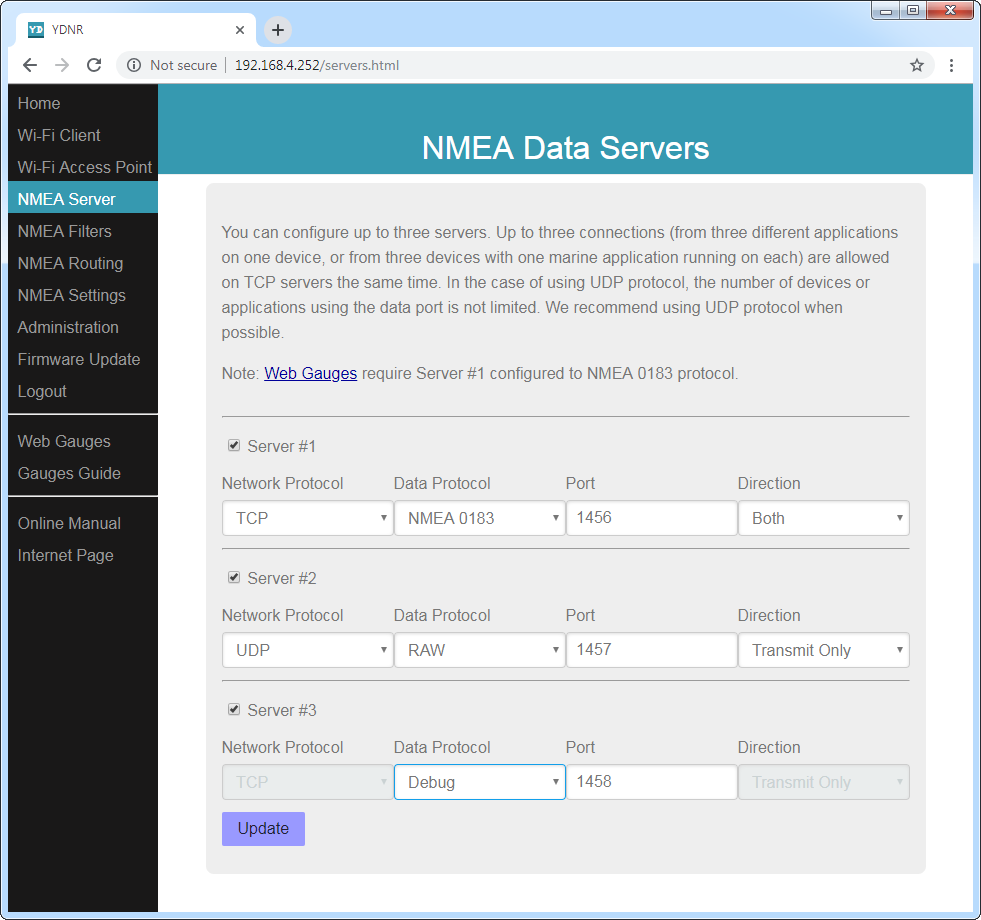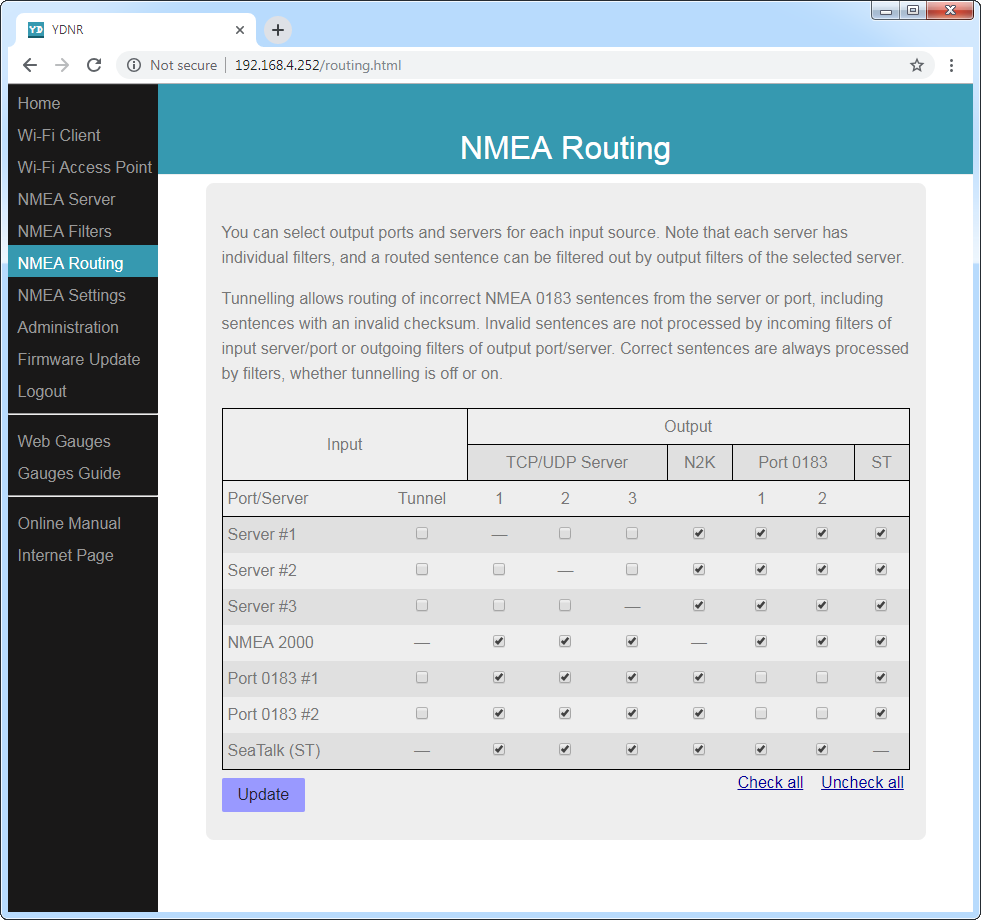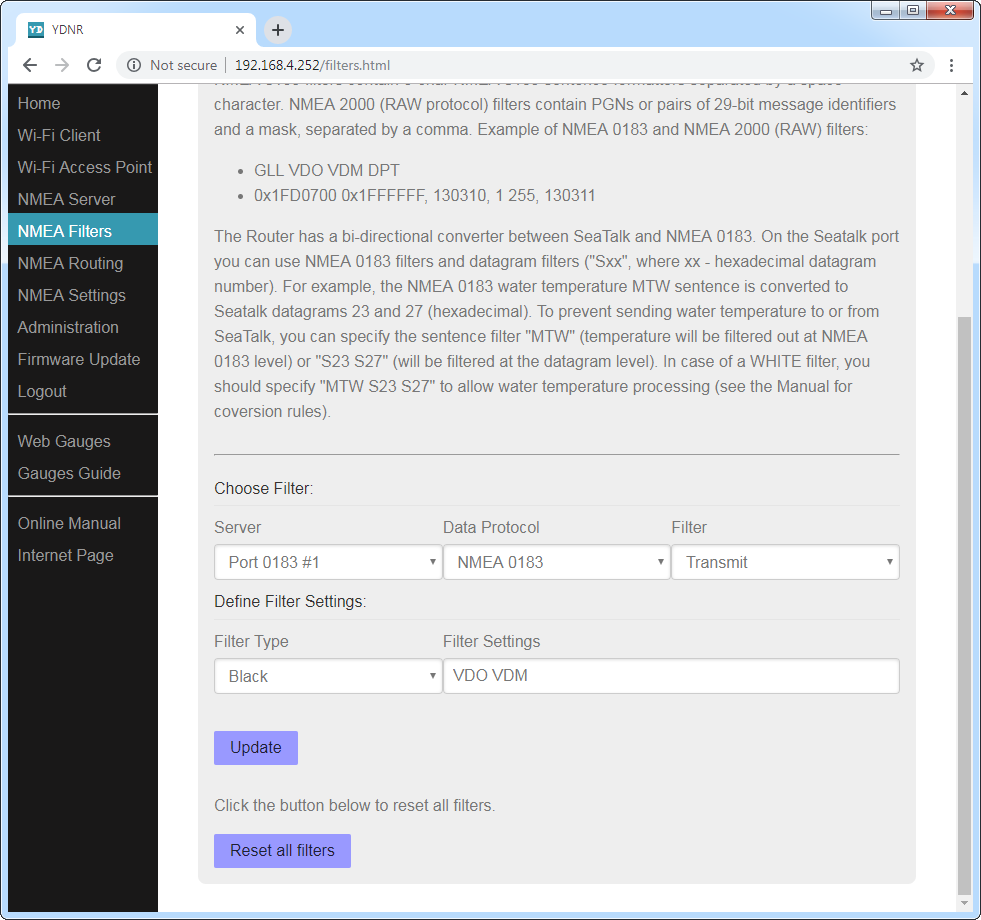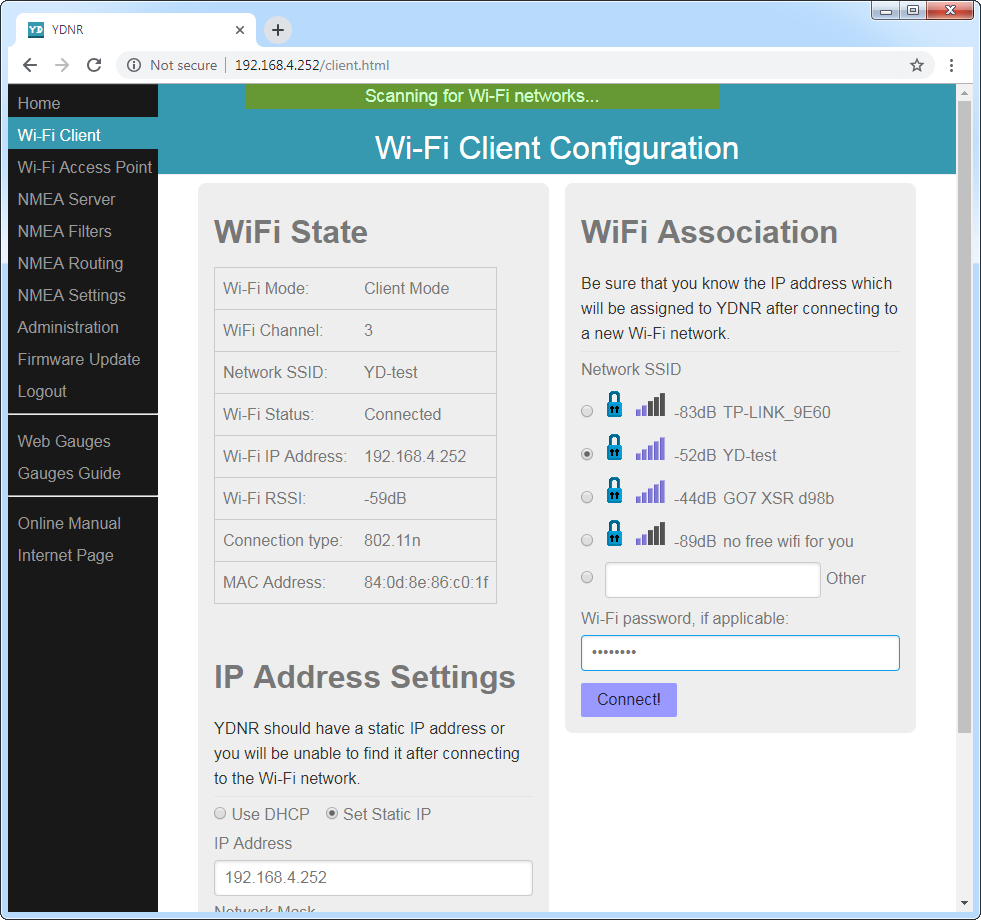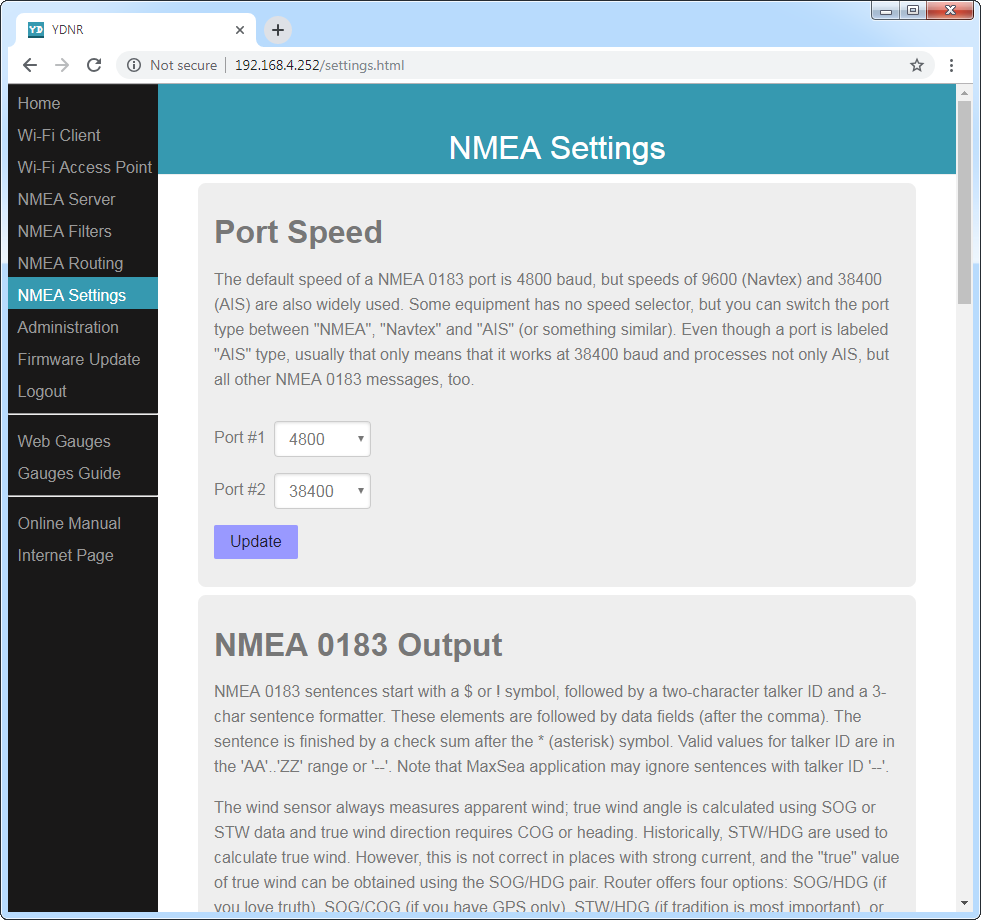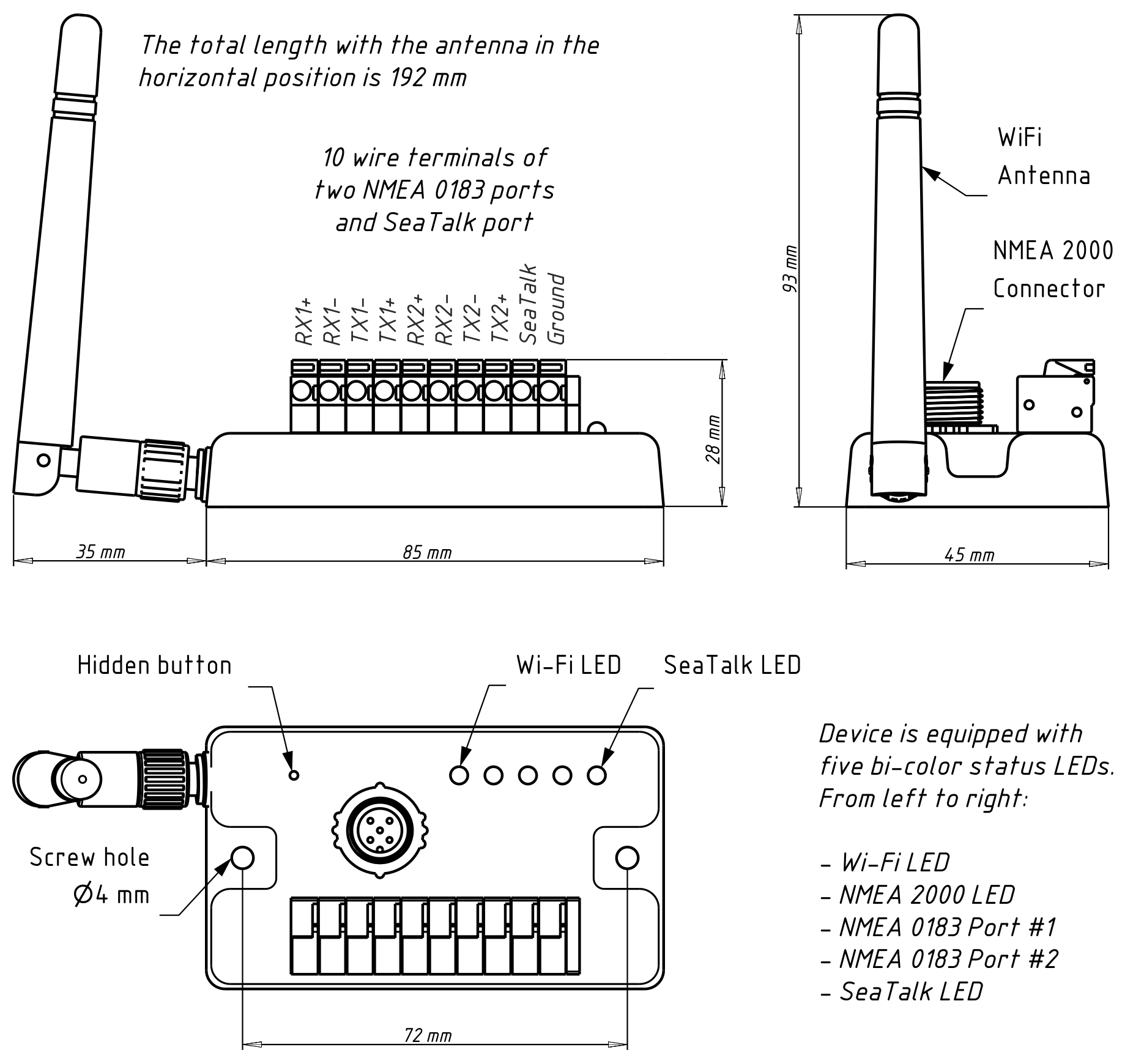The Router connects all marine and mobile devices easily. It supports all popular marine protocols, is compatible with virtually all marine software, and even allows management of your vessel from a web browser without internet connection or installed software.
The Router is equipped with NMEA 2000 and SeaTalk ports, two NMEA 0183 ports, has three TCP/UDP data servers and a built-in web server, where you can easily configure it or update the firmware. It creates its own Wi-Fi network (Access Point) or can be connected to a boat's existing Wi-Fi.
Picture 1. NMEA 2000 Wi-Fi Router
The Web Gauges page of the built-in web site allows managing of a digital switching equipment and real time viewing of vessel data using a web browser on PC, laptop, tablet or smartphone; no internet connection or app installation is required. If you have access to your boat Wi-Fi network over the internet, Web Gauges are a ready solution to monitor and manage your vessel.
Pictures 2-6. IPhone screenshots of Web Gauges
The Router has the best bi-directional converters between NMEA 2000, NMEA 0183 and SeaTalk, with the widest range of supported messages on the market. Routing of data flows can be easily managed from a web interface (see Picture 8), and individual message filters on each port and data server allows limiting the traffic for low speed ports or block specific devices, NMEA 2000 messages, SeaTalk datagrams or NMEA 0183 sentences.
Pictures 7-12. Screenshots of administrative web site (use slider)
One of the data servers can be configured for Debug protocol, to inspect data flows routed to this port right from a web browser. The free PC software supplied allows viewing the CAN bus (NMEA 2000, J1939) data, manage NMEA 2000 devices and record messages to a file.
The Router automatically records your track with weather, depth and other data to the internal memory (up to 12000 points). These data can be saved from the internal web site to GPX (for Garmin MapSource, Google Earth or other cartographic applications) or CSV (spreadsheet) files.
If the Router has an internet connection, it can automatically upload recoreded data to Cloud Services. Cloud Services allows easy access to your tracks from home and lets you share your position with family and friends.
Product features:
- NMEA 2000 port with NMEA 2000 Micro Male connector;
- two physical NMEA 0183 TX/RX ports (300..115200 bps);
- both "single ended" (RS-232) and "differential" (RS-422) NMEA 0183 connections are supported;
- has one SeaTalk port (multiple devices can be connected);
- three TCP/UDP data servers (NMEA 0183 or NMEA 2000 data) for software and apps;
- automatically records your track and other data to the internal memory;
- an internal web server for diagnostics, firmware updates and configuration.
The Router use cases:
- connecting old (NMEA 0183, SeaTalk) equipment (sensors, autopilots) to modern chart plotters with NMEA 2000 interface only;
- connecting of equipment with different port speed or protocol (e.g. SeaTalk sensors to NMEA 0183 and NMEA 2000 equipment, or 4800 bps GPS receiver with 38400 bps AIS or VHF with built-in AIS receiver);
- connect marine equipment with software and apps (compatible with virtually all marine software, including OpenCPN, Expedition 10, Coastal Explorer, iNavx, Navionics Boating, iSailor and others);
- solving of software connectivity problems (using data filters, or tunnel mode without checksum validation for very old NMEA 0183 equipment);
- managing and monitoring of a vessel over Internet (VPN access to boat's Wi-Fi is required);
- wireless link between NMEA 0183 or SeaTalk devices or segments of NMEA 2000 network (pair of Routers required);
- managing and updating of NMEA 2000 devices, recording NMEA 2000 data for diagnostics.
Despite the fact that the Router case is waterproof, wire terminals are open and seawater can cause a short circuit. Do not place the device where it can be flooded by water, get wet in the rain or be sprayed with water.
Picture 13. Drawing of NMEA 2000 Router YDNR-02
The Router is supplied with NMEA 2000 Micro Male connector, an adaptor cable is required for connection to Raymarine SeaTalk NG or Simrad SimNet. For additional technical details, please see the User Guide and FAQ.








